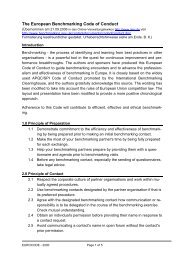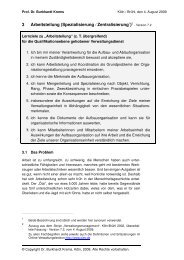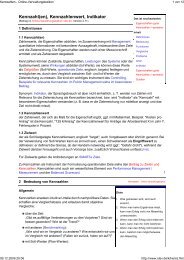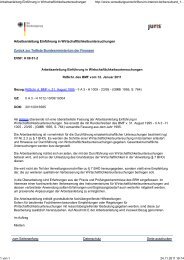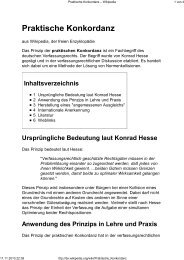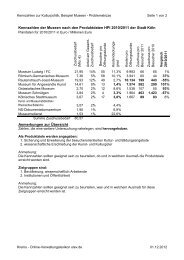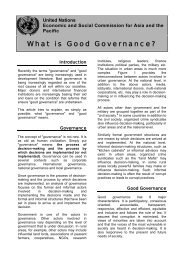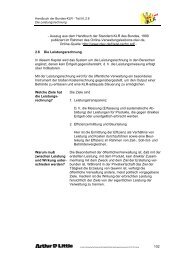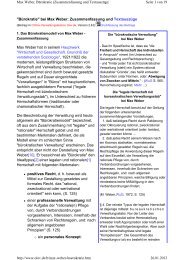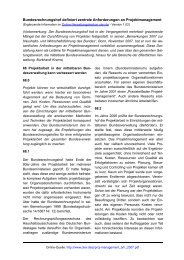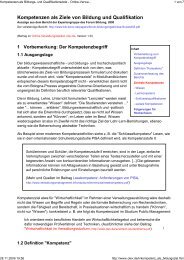Strategy Survival Guide
Strategy Survival Guide
Strategy Survival Guide
You also want an ePaper? Increase the reach of your titles
YUMPU automatically turns print PDFs into web optimized ePapers that Google loves.
<strong>Strategy</strong> <strong>Survival</strong> <strong>Guide</strong> Version 2.1<br />
Prime Minister’s <strong>Strategy</strong> Unit<br />
home | strategy development | strategy skills | site index<br />
<strong>Strategy</strong> Development > Research & Analysis<br />
Phase<br />
Tasks<br />
Output<br />
Research &<br />
Analysis<br />
• Gathering<br />
knowledge<br />
• Analysing<br />
knowledge<br />
• Reviewing<br />
delivery<br />
capability<br />
Interim<br />
analytical<br />
report<br />
> typical management<br />
issues in this phase<br />
> key questions to ask<br />
in this phase<br />
Once the project has been agreed and a project plan is in place, the team<br />
can start to lay the foundations for developing evidence-based strategy and<br />
policy by:<br />
• identifying and gathering all relevant available qualitative &<br />
quantitative knowledge<br />
• analysing it to generate understanding and insights.<br />
This phase is concerned with developing an accurate understanding of the<br />
issues in hand and accessing the best available knowledge for how to<br />
respond to them. In practice, this will lead to an iterative process with new<br />
data requirements arising as the team’s thinking evolves. Within the time<br />
scales of the project it is also likely that judgements will need to be made to<br />
bridge gaps in the available knowledge, which should themselves be used to<br />
inform the priorities for ongoing research.<br />
There are a wide range of tools and techniques for gathering and analysing<br />
data. Links should be established with government specialists early in the<br />
process so that their expertise can be brought to bear with maximum effect.<br />
Understanding the dynamics of the delivery system, and the culture and<br />
available resources of organisations within it, will provide valuable context. It<br />
will help to highlight the degree of change required by the new strategy and<br />
identify any potential constraints to its successful delivery.<br />
The desired outcome is that the team develops a comprehensive and<br />
accurate understanding of the key facts that may have a bearing on the<br />
emerging strategy. The broader the reach of the analysis within the time<br />
available, the richer the picture that will emerge.<br />
It can be valuable to conclude this phase with the publication of an interim<br />
analytical report. This will focus the team’s efforts, invite challenge and<br />
feedback, and provide a common platform of understanding for developing<br />
strategic options in the next phase.<br />
Skills relevant to this phase include:<br />
> structuring the thinking<br />
> building an evidence base<br />
> managing people and the project<br />
<strong>Strategy</strong> <strong>Survival</strong> <strong>Guide</strong> – <strong>Strategy</strong> Development<br />
Page 22



